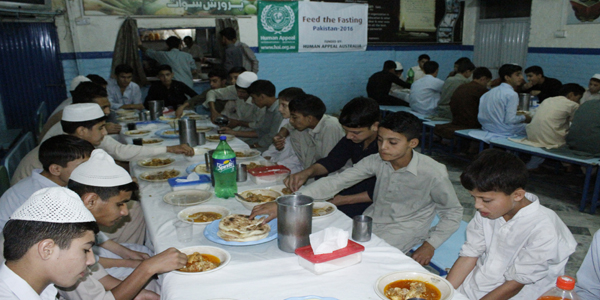Ramadan, the holy month of fasting for Muslims, is a time of deep spiritual reflection, community bonding, and acts of charity. In Pakistan and Azad Jammu & Kashmir (AJK), these traditions are vibrantly observed with a focus on supporting the less fortunate through food aid and culminating in the joyous celebrations of Eid al-Fitr.
Ramadan Food Aid
Ramadan food aid is a crucial aspect of the month in Pakistan and AJK, addressing the needs of impoverished families who struggle to provide for themselves. Numerous charitable organizations, local community groups, and individuals come together to distribute food packages, ensuring that those in need can also participate in the daily iftar (breaking of the fast) and suhoor (pre-dawn meal) with dignity and sustenance.
-
Community Initiatives: Many local mosques and community centers organize food drives, collecting donations from the public to prepare and distribute iftar meals. These initiatives often cater to large groups, offering nutritious meals to hundreds of people every day.
-
NGO Efforts: Non-governmental organizations (NGOs) like Edhi Foundation, Saylani Welfare, and Alkhidmat Foundation play a significant role in providing food aid. They distribute food packages containing essential items such as rice, flour, lentils, sugar, cooking oil, and dates, which are staples for iftar and suhoor.
-
Corporate Social Responsibility (CSR): Companies in Pakistan and AJK also engage in CSR activities during Ramadan. Many corporations set up food stalls in urban and rural areas, offering free meals to those in need. This not only supports the community but also fosters a spirit of solidarity and compassion among employees.
-
Government Support: The government, at both the federal and provincial levels, often launches special Ramadan food aid programs. Subsidized food items are made available through utility stores, and targeted assistance is provided to vulnerable populations to alleviate food insecurity during the holy month.
Eid al-Fitr Festivities
The end of Ramadan is marked by Eid al-Fitr, a festive occasion celebrated with joy, gratitude, and communal harmony in Pakistan and AJK. Eid is a time for families to come together, share meals, exchange gifts, and celebrate the completion of a month of fasting and spiritual growth.
-
Preparations and Shopping: In the days leading up to Eid, markets and bazaars are bustling with activity as people buy new clothes, shoes, and accessories. Henna artists create intricate designs on women’s hands, adding to the festive spirit.
-
Eid Prayers: On the morning of Eid, Muslims gather in large open spaces or mosques to perform the special Eid prayer, known as Salat al-Eid. The prayer is followed by a sermon and a collective supplication for peace and prosperity.
-
Zakat al-Fitr: An important aspect of Eid is the giving of Zakat al-Fitr, a form of charity given to the poor before the Eid prayer. This ensures that everyone, regardless of their financial situation, can join in the celebrations.
-
Family Gatherings and Feasts: After the prayers, families come together to share lavish meals. Traditional dishes like biryani, kebabs, and sweets such as sheer khurma (a sweet vermicelli dish) are prepared. Visiting relatives and friends, exchanging gifts, and enjoying communal meals are integral parts of the festivities.
-
Festive Activities: Various cultural events, fairs, and carnivals are organized across Pakistan and AJK. These include traditional games, rides, and performances, providing entertainment for people of all ages.
Conclusion
Ramadan and Eid al-Fitr in Pakistan and AJK are characterized by deep religious significance, communal support, and joyous celebrations. Through collective efforts in providing food aid during Ramadan and the exuberant festivities of Eid, these regions exemplify the spirit of compassion, unity, and generosity. Such practices not only uplift the less fortunate but also reinforce the bonds of community and faith.

